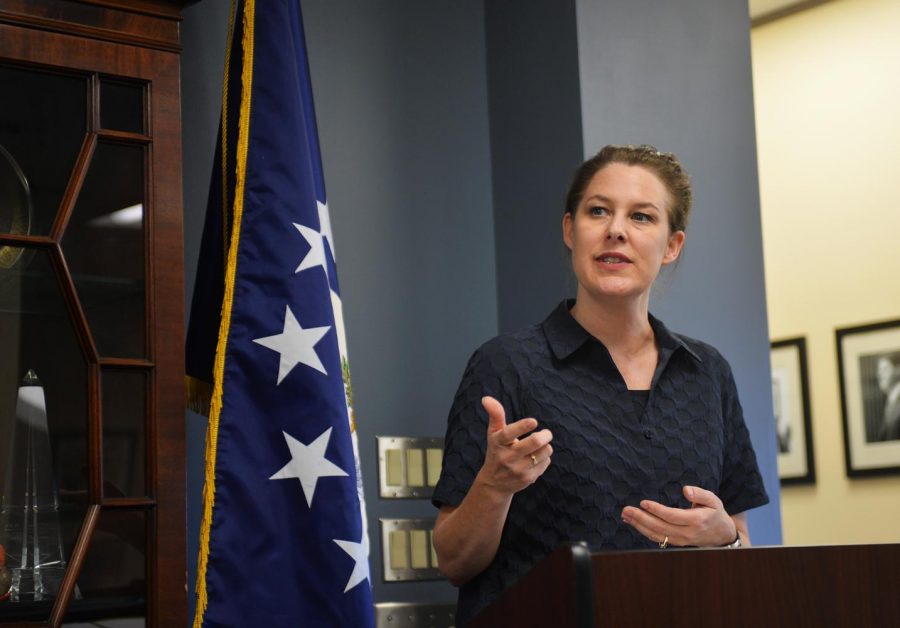‘Listening to understand’
Political polarization a reason for incivility, professor says
MICHAEL LINDER | The Daily Evergreen
During her speech, political science professor Carolyn Long encourages political civility on campus.
October 8, 2017
Civil discourse in politics, and the lack thereof, were the topics of discussion at a Foley Institute talk on Friday.
Visiting associate professor Carolyn Long in the School of Politics, Philosophy and Public Affairs at WSU Vancouver, spoke about how civility in politics can affect both peoples’ personal and public lives.
Long defined incivility as individuals being unwilling to speak to one another due to the difference in their perspectives, in both their political activities and personal life.
She said political polarization is why there is incivility in political discourse, noting that Washington is the fifth most polarized state in the U.S., and the growing income inequality has played a part.
The event was co-sponsored with the WSU Political Science Club, as part of the Foley Institute’s Coffee and Politics series.
Hannah Oliason, president of the Political Science Club, who co-sponsored the event, said social media can compound the problem.
“Partisan habits are also reinforced by social media,” Oliason said, “because people just follow their friends’ views and what social media leads them to believe, based on their search history.”
Long suggested attendees might go beyond just being considerate, in their effort to have civil discourse.
“It’s not about being merely polite,” she said. “But rather willing to listen to understand, not just respond. You should even try to question the position on which you stand.”
She said people should make decisions not based on information alone, but also on values. This includes questioning the other party, with a deep desire to understand their positions to practice democratic debate.
Long added that engaging in constructive conflict is crucial in revitalizing democracy and growing conversational competency. This means not taking disagreements personally, and not dismissing others with different views, and that respect is the first principle in steps of becoming more engaged citizens.
Heidi Stallman, vice president of the Political Science Club, said Long’s speech is about resisting the impulse to listen with only one perspective and students should cultivate an attitude of discovery.
“We should seek new perspectives and stay out of [our] comfort zone,” Stallman said, “acknowledging the role that government is playing in our lives.”





















